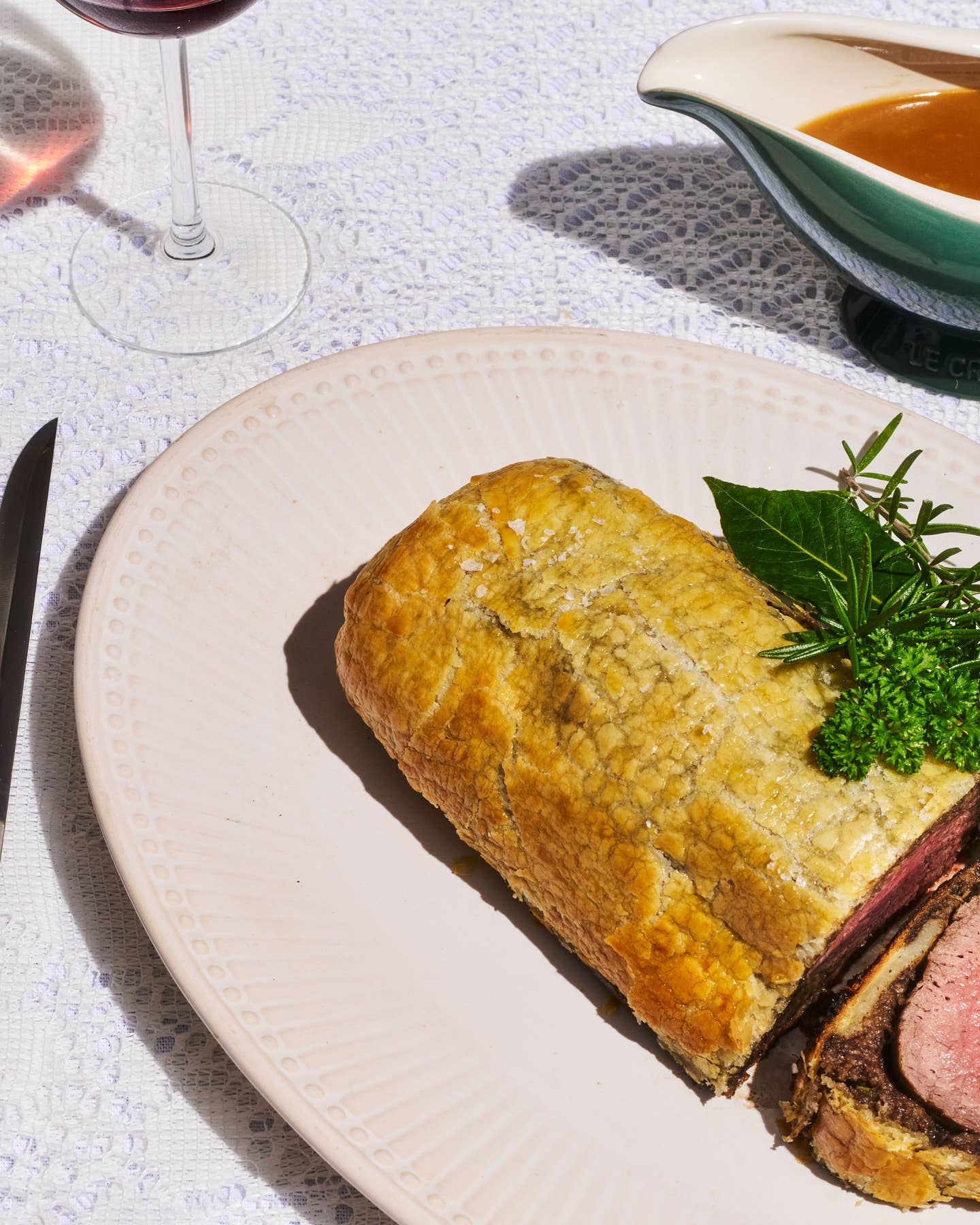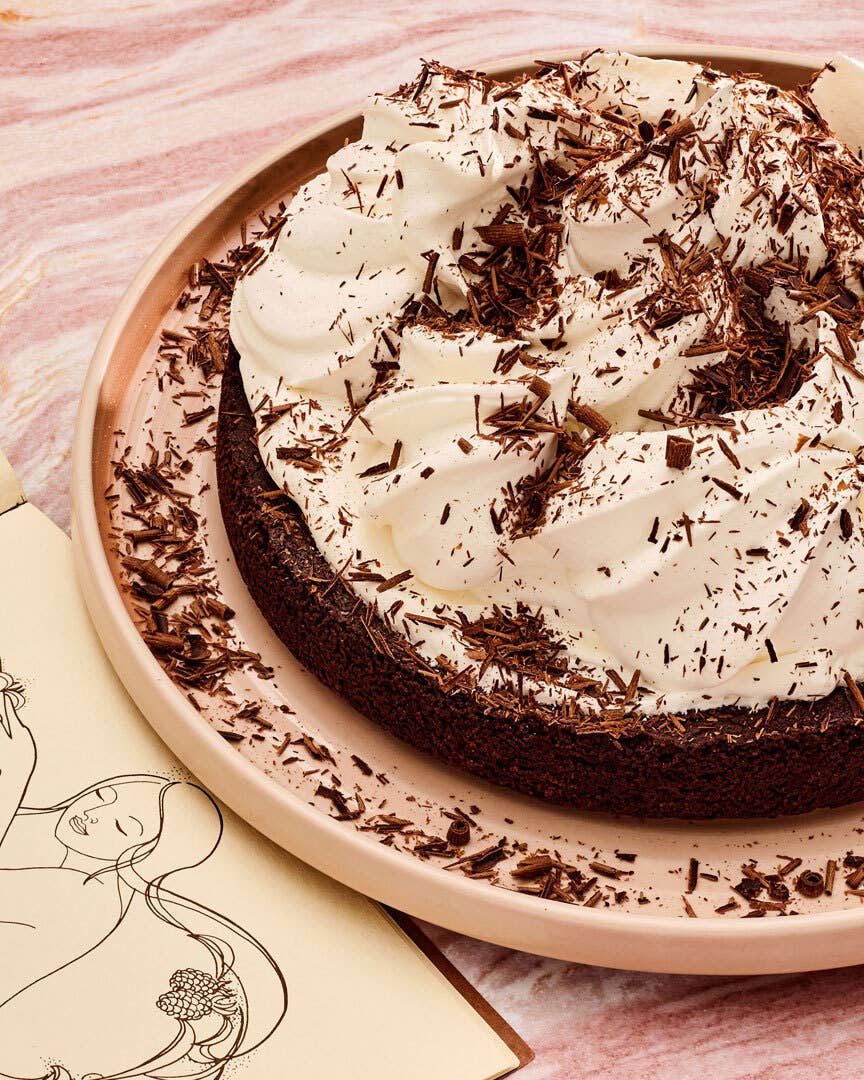
Though I’ve lived abroad most of my life, Gaza is where I call home. It's where my parents were born and raised and where I spent summers as a child. Whenever we’d return, we’d be welcomed back by our large extended family. First among them was my aunt An’am Dalloul, whom we called Khalto Um Hani: “mother of Hani,” her eldest child and my cousin. She’d always arrive bearing a bowl of sumagiyya, Gaza City’s signature meat stew with chard, sumac, and chickpeas—and my father's favorite meal.
Um Hani, along with my cousins Hoda, Wafaa, and Hani, were killed in an Israeli airstrike in their residential Gaza City neighborhood in November 2023.

In an instant, the household perished, my cousin Nael later told me. Only a skeleton of the building was left. He recounted the horrific scene over WhatsApp—how he gathered their remains in his arms and buried them in a mass grave under heavy Israeli bombardment, how he failed to retrieve the corpse of one of his sisters, and how his brother bled to death before paramedics could reach him. Nael, like 90 percent of Gazans at the time of writing, is displaced, fleeing with his children from one city to the next in search of shelter, food, and some semblance of safety. He has been surviving on canned beans for more than three months.
Nael’s news shook me to my core. I couldn’t sleep. I couldn't eat. I was overwhelmed with a profound sense of helplessness and despair. Was it only a matter of time before the rest of my family in Gaza would perish?
As I read Nael’s texts, the memories came flooding back. Of Um Hani cooking in her bright, breezy kitchen wearing the traditional white hijab and light blue jalabiya. Of the birthmark on her face and her soft olive skin. Of her husky voice and the gentle laugh that masked the fierce and determined woman underneath.

Um Hani was an anchor to me, a link to the paternal grandmother I never met and to a city I often felt estranged from. She was a repository of memories, a key to the fragmented world to which I belonged as a Palestinian. She taught me to make the near-forgotten dishes my grandmother loved, the ones my father grew up eating such as adas wi batata (lentils and potatoes cooked in a clay pot with lemon and fried garlic) and samak il-armala (“widow’s fish,” or fried eggplants with chiles and ribbons of fresh basil). But as fate would have it, she never got the chance to show me how to make sumagiyya—her specialty, brimming with lamb and spiced with dill seeds and cumin.

In Gaza, sumagiyya is synonymous with weddings, family gatherings, and Eid Al-Fitr, the Muslim holiday that marks the end of the holy month of Ramadan and its 30-day fast. The dish is always made for a crowd, simmered in large pots and enriched with nutty roasted “red” tahina, then ladled into bowls for friends, family, and neighbors.
I felt that sense of community whenever I was in Gaza, but not so much in Saudi Arabia, where I spent most of my childhood in the 1980s. My parents were medical professionals, too busy securing their children’s education and futures to labor over traditional dishes. The first Palestinian intifada, or uprising, was raging back home, and beyond making sure we had degrees (the stateless Palestinian’s safety net), their priority was ensuring we didn’t forget our history (“so history won’t forget us,” they said). Food got lost in the shuffle.
My mother was raised in Khan Younis, southern Gaza, in the company of her Kurdish-Syrian grandmother. Consequently, her culinary repertoire was more Damascene than Palestinian—until she met my father. A native of Gaza City, he often yearned for the flavors of his childhood, which put my mother in a bind at first. But Um Hani happily came to the rescue, sharing her comfort-food recipes over the phone.

On Eid, Baba (Dad) always requested one dish in particular: sumagiyya, which Um Hani taught my mother to make. As a girl, I remember coming home from school to a house thick with the smell of simmering lamb, allspice, cardamom, and tart, fruity sumac berries (for which the dish is named).
Even then, I was intensely curious about Gazan food and the stories it told: of villages erased from the map, of places I’d only heard about, of people I’d never met. Recipes were a sort of treasure map to a largely invisible, or invisibilized, world of Palestinian history going back well before the 1948 Nakba, the year Palestinians refer to as their “catastrophe,” or mass expulsion and dispossession. After finishing college in North Carolina, I followed that map to Gaza, where I lived, worked, and raised my firstborn.
It was there that I realized my hands-on culinary education from Um Hani wasn’t unique to me but rather quintessentially Palestinian. Ask any Palestinian how they learned to flip a pot of maqlooba, and they’ll likely tell you it was through an elder’s patient instruction, not a cookbook or YouTube video. Israel’s checkpoints, separation walls, and roadblocks may have physically separated our families, but they could not eradicate our culture. To quote Jerusalem-born Palestinian chef Sami Tamimi, “Recipes transcend mere culinary instructions; they encapsulate narratives, memories and serve as a testament to the resilience of those who have entrusted them across generations.”

Teaching the next generation of Palestinians how to make a celebratory stew may seem trivial, inappropriate even, in light of the deliberate starvation and plausible genocide facing Gazans right now. But food is as integral to our identity and rootedness to the land as our centers of cultural knowledge, such as archives, libraries, theaters, and schools, which are also under attack. Israel’s assault is eliminating entire bloodlines, and with them, all of the memories and knowledge they possessed.
I live in the United States now, and I’ve cooked sumagiyya more times than I can count—even if it never tastes quite like Um Hani’s. One occasion stands out. It was May 2021, and Gaza City was being pummeled in what was the fourth major assault by Israel on Gaza in 14 years. The attack coincided with Eid, and as I watched on my screen in Clarksville, Maryland, horrific images of air raids and grief-stricken mothers, I suddenly felt the urge to make a pot of sumagiyya. Serving it to my family and friends that night, despite the unfolding tragedy, was unexpectedly liberating and affirming.
Last month, I again found myself in tears chopping onions and chard for sumagiyya, but this time I was making it to honor Um Hani’s memory. Like in 2021, I couldn’t look away from the news: The park where I used to take my son for evening strolls, the beach promenade where I drank sage tea with my mother, the university where I gave guest lectures—they were all unrecognizable piles of overturned dirt and warped wire.

While the pot bubbled, I rifled through old notes. I was looking for an interview with Um Hani that I conducted for The Gaza Kitchen, the cookbook I co-authored. Reading the transcript, I was immediately transported back to her kitchen table in Gaza. Our conversation, which unfolded during Ramadan, covered everything from struggles with water contamination to chronic power outages to the rising price of fish due to limits imposed by Israeli navy gunships. Um Hani began the interview describing how my grandmother loved watermelon and taking sumagiyya to the beach on Fridays. Then she spent hours showing me pictures that only she had of my father’s childhood in Gaza. “Do you see how beautiful I am in this yellow dress?” she mused.
Nothing remains of those pictures, or of that kitchen, or of that house. I was too hot and too impatient and too hungry to make copies of the images. “Let’s get to the cooking,” I kept pressing, trying to stay on track. (I weep as I write this. If I could tear a hole in time, I'd wrest the pictures from her hands and keep them with me forever.)
The interview ends like this: “I can teach you how your grandmother made sumagiyya …”
“Another time,” I fired back, exhausted from the long day of fasting. Another time never came, and never will.
Lately, I’ve been thinking about what I would go back to, and what I would find, if I returned to Gaza. Most of the landmarks have been destroyed. Gone too are many of the people I cherished. But with Ramadan fast approaching, and with no end in sight to the bombardment, it feels like I am the torchbearer now, the family’s keeper of treasured recipes. Like Um Hani, I will cook and I will teach, connecting the next generation of Palestinians to our homeland.



Keep Reading
Continue to Next Story










